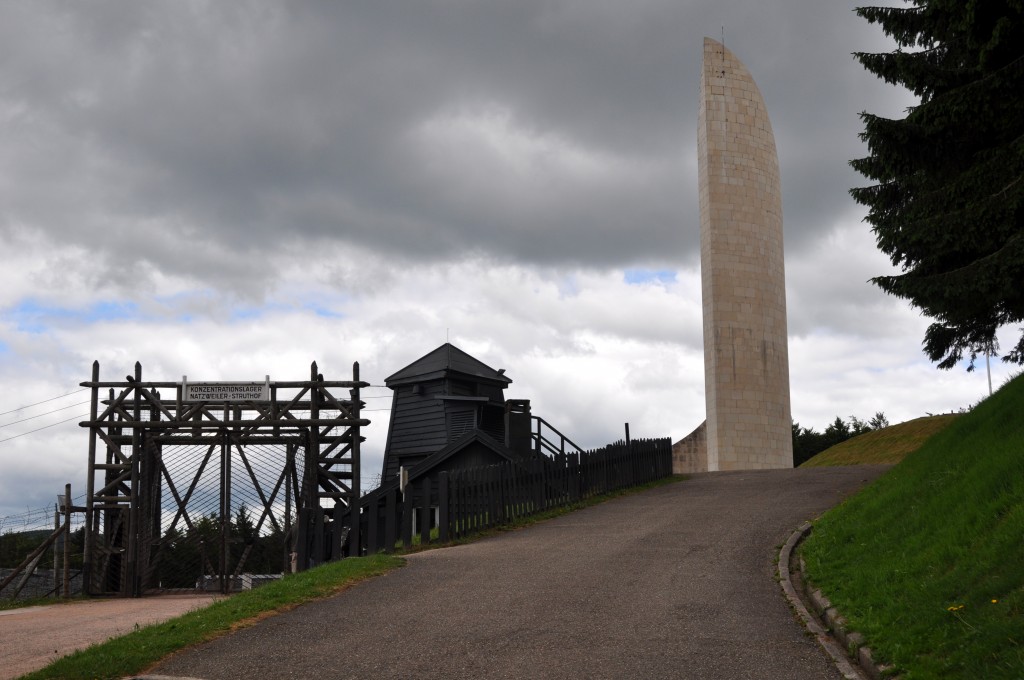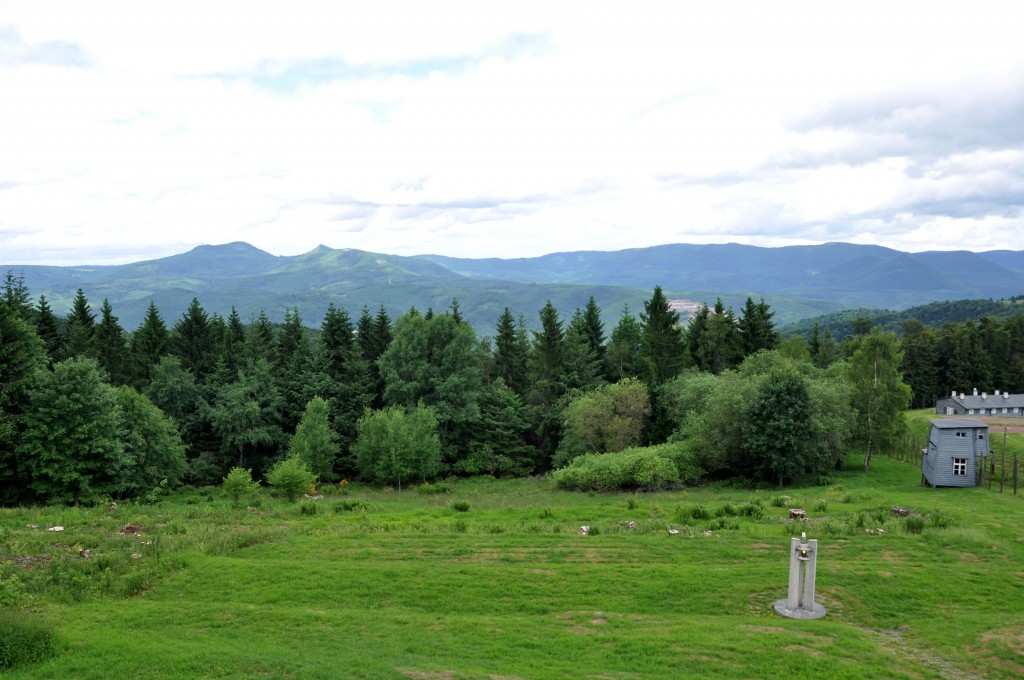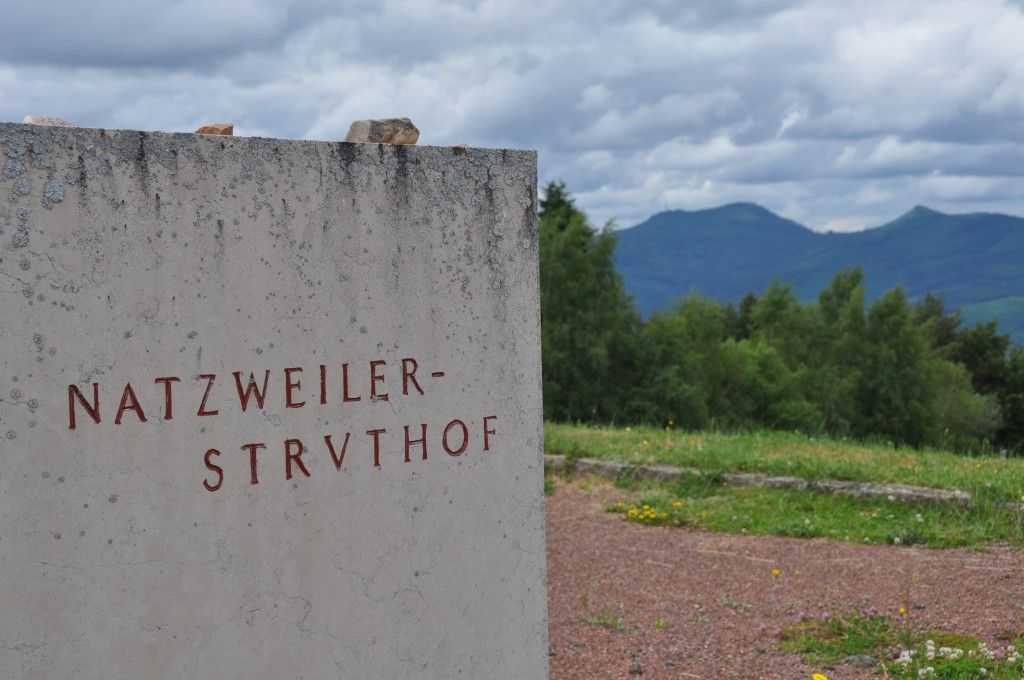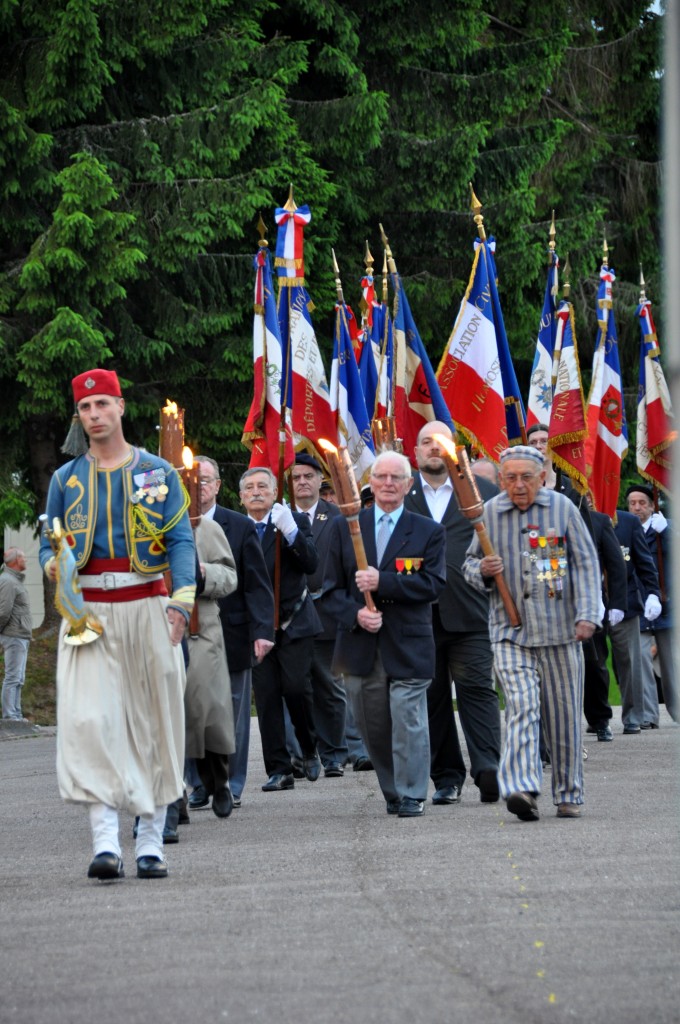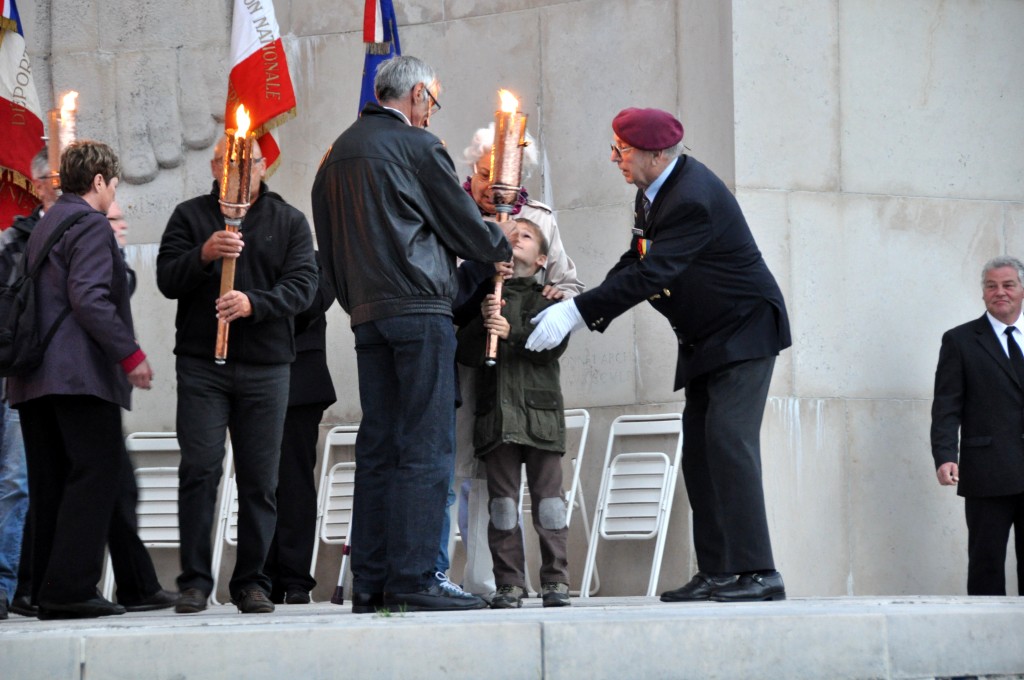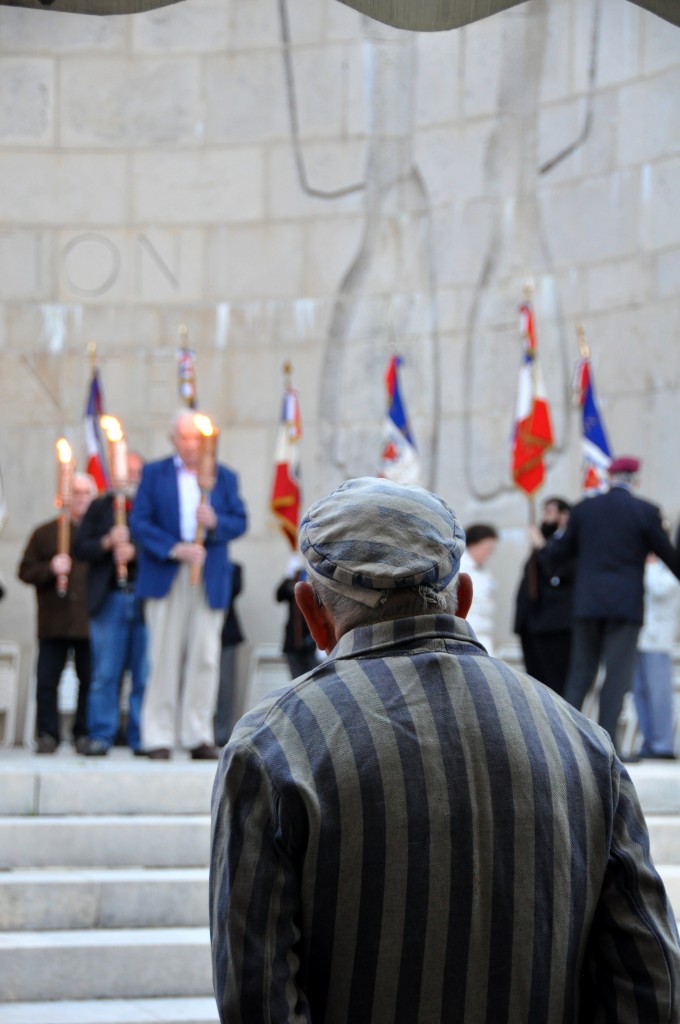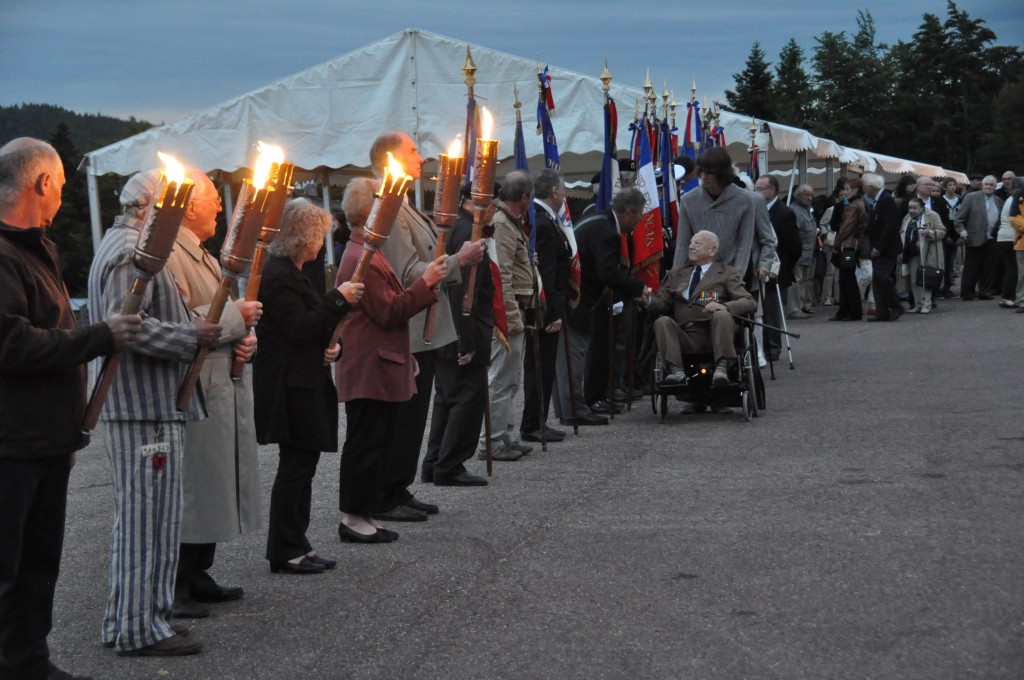If there is one thing I have learned during this Olmsted journey, it is how much I don’t know: about languages, about history, about the world and its people. I have, however, learned valuable lessons about myself and what I value in other people: humility and the courage to say, “I don’t know.”
I don’t know everything that happened today or why. I can’t and won’t pretend to. However, if experiences are the best teachers in life, then I learned a lot today. I spent the day with a college girlfriend at the Struthof-Natzweiler Concentration Camp in Natzweiler, France.
In operation from May 1941 to September 1944 and hidden high in the Vosges Mountains, Struthof was actually where 107 Allied troops were executed. I don’t know which word would suit it best – juxtaposition, irony, torture – but the view looking out from the site was wonderful.
The area used to be a popular winter recreation and skiing resort, until it came into the hands of the Nazis in 1940. I can only hope that prisoners were able to catch a quick glimpse of the beautiful Vosges landscape each day and experience even the shortest moment of reprieve or glimmer of joy.
We stayed late into the evening to observe the Memorial Vigil that has been taking place each year since 1960. It honors the burial of an unknown deportee in the crypt the night before General de Gaulle inaugurated the Deportation Memorial. There is another commemorative ceremony tomorrow, as well as one in September, which observes the evacuation of the camp’s deportees to Dachau.
The ceremony began with a parade of participants walking from the camp gate to the memorial. They brought torches and lit the Flame of Remembrance, as three trumpeters played a somber song. Two of the trumpeters were out of view, echoing the hymn through the camp, and hopefully the mountains beyond.
We stood quietly as one trumpeter signaled the passing of torches from person to person, man to woman, old to young.
I don’t know who each individual was or how their life’s journeys brought them to this place, but I do know that several of them saw the horrors of WWII and the Struthof – Natzweiler Concentration Camp with their own eyes.
After the passing of the torches, this man in the striped prisoner uniform sang a song in French. Armed with his prisoner number, color and notations of his ‘triangle’, and the Internet, I set out to learn who he was. After hours of research, I ended up right where I started…without an answer. It wasn’t time wasted though, because I read dozens of first-hand accounts from both survivors and victims of Struthof. The most inspiring was reading about survivors who have dedicated their lives to telling the stories of those who no longer can, such as Pierre Rolinet.
So, I still don’t know who the man in the striped uniform is, or his story, but as I listened to his song accompanied by the faint weeping of the woman standing next to me, I knew that there was a lot going on here that I didn’t understand: not in language, nor life experience.
Finally, as the sun marked the final minutes of the solstice, the torch bearers lined up to give their passing remarks to survivors, participants, and observers. Why some comrades stood in the receiving line, while others walked through it, I also don’t know.
Regardless of what is known and what is not, there are still many stories from WWII to be told and living souls to do it. What I do know, is that being a very small part of remembering history today was an experience I never dreamt I would have, even if I didn’t understand a single word.
The only true wisdom is in knowing you know nothing. ~Socrates

